Affiliate Disclaimer
Some links in this article are affiliate links. We may earn a small commission if you make a purchase through these links, at no extra cost to you. We only recommend products we find useful to our readersHormonal imbalance is a big determinant of fertility. The regular patterns of ovulation, menstrual cycles, and sperm production are driven by hormones. Once these hormones get out of balance, they disrupt the process and lead to infertility. Understanding how hormonal imbalances affect fertility is key if you’re suffering from infertility. This article discusses the link between hormonal conditions and fertility.
We’ll delve into some of the most frequent hormonal disorders, and shed light on means of treatment and diagnosis. With a better understanding, you will be able to make informed decisions and take proactive steps to improve your reproductive health.
What Is Hormonal Imbalance?
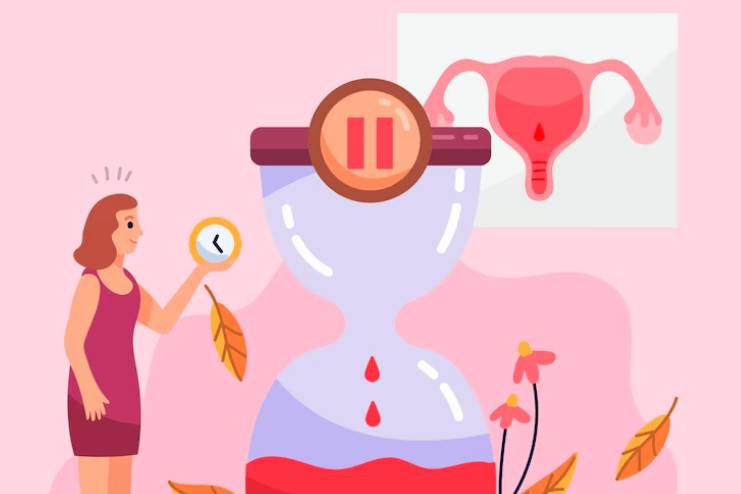
Hormonal imbalance, basically, involves abnormal levels of certain hormones in the blood that create disorders in the normal regulation of body functions. Hormones are chemical messengers that regulate several body functions, including reproduction. Some of the causes that give rise to hormonal imbalance include lifestyle factors, environmental toxicants, genetic predisposition, and other underlying medical conditions such as (Polycystic Ovarian Syndrome) PCOS or thyroid disorders. Such imbalances may seriously affect hormone levels needed for fertility and cause disorders such as poor ovulation, poor egg quality, and disrupted menstrual cycles.
Also, read: Know The Infertility Causes And Treatments
How Hormones Regulate the Reproductive System
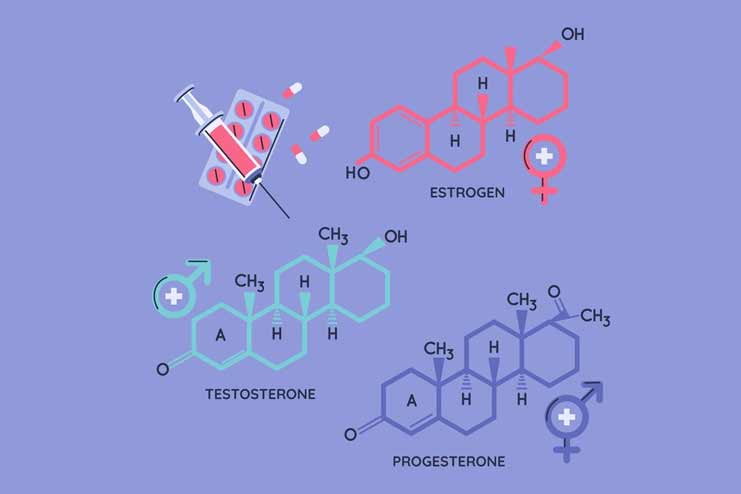
We know what hormonal imbalances are but how do hormones regulate the reproductive system? Reproductive hormones help in regulating menstruation and overall reproductive health. The primary hormones involved in menstruation are estrogen, progesterone, luteinizing hormone (LH), and follicle-stimulating hormone (FSH).
- Estrogen: It is responsible for female reproductive system development and maintenance. It regulates the growth of ovarian follicles and prepares the uterine lining for pregnancy. Estrogen levels increase during the menstrual cycle, peaking just before ovulation.
- Progesterone: It is secreted post-ovulation and prepares the endometrium for implantation of the fertilized egg. In cases where pregnancy does not occur, progesterone levels decrease and menstruation takes place.
- Luteinizing Hormone (LH) and Follicle-Stimulating Hormone (FSH): The pituitary gland secretes LH and FSH to control ovarian functions. FSH promotes the growth of follicles and maturation of ova, and LH helps in the release of the mature ovum from the ovary. Both these hormones work together to regulate the menstrual cycle and ensure the timely release of the egg, proper preparation of the uterine lining, and if needed, menstruation. Proper hormonal balance is essential for regular cycles and successful conception.
Signs and Symptoms of Hormonal Imbalance Affecting Fertility
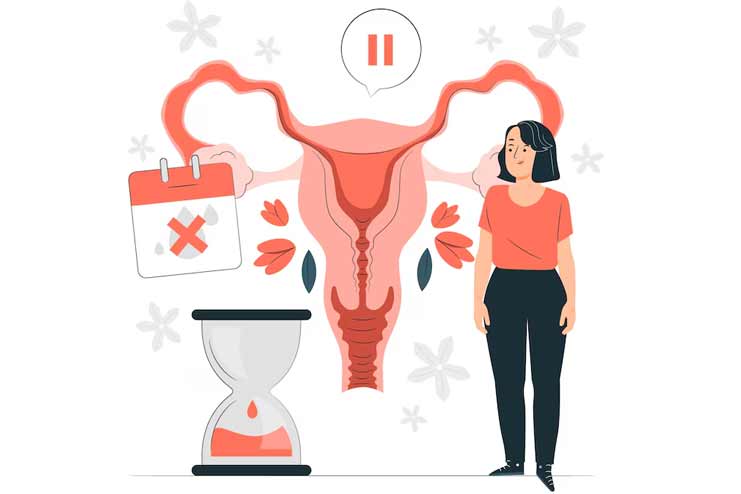
Symptoms In Women:
- Hormonal disruption may cause irregular flow or absence of menstruation and/or heavy flow.
- Other symptoms that could indicate high levels of androgens are an increase in hair growth and acne and unexplained changes in weight. These are frequently seen in disorders like PCOS.
- Prevalent symptoms are mood changes, prolonged tiredness, and sleep disturbances.
Symptoms In Men:
- Hormonal imbalances in men can be identified by low libido, impotence, and reduced sperm count.
- Fatigue, depression, and sudden weight gain or loss could also signify hormonal imbalances.
- Further, changes in hair patterns, such as thinning of hair or hair loss, could be associated with hormonal imbalances.
Also, read:
Conditions Caused by Hormonal Imbalance
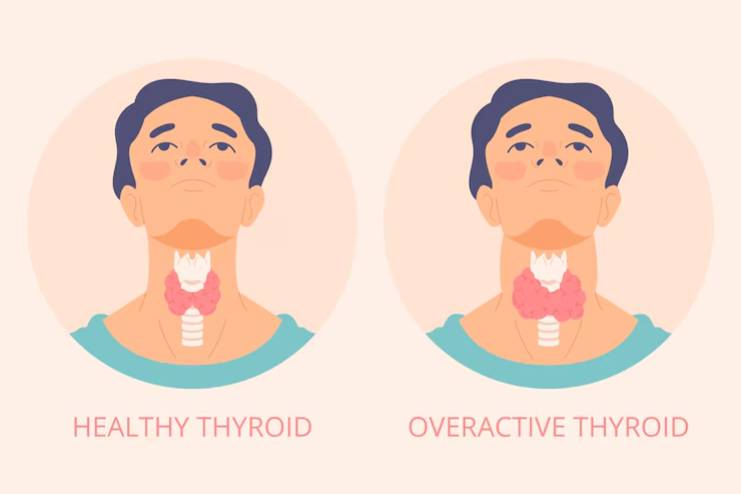
These hormonal imbalances can lead to several conditions that affect fertility, including polycystic ovary syndrome (PCOS) and thyroid disorders. PCOS is a common endocrine disorder where elevated androgen levels disrupt the menstrual cycle and ovulation. Women with PCOS often experience irregular periods, cystic ovaries, and difficulty conceiving due to the lack of ovulation. This condition can also lead to insulin resistance, further complicating fertility.
- Polycystic Ovarian Syndrome: These imbalances affect fertility, causing various conditions, including polycystic ovary syndrome and thyroid disorders. PCOS is a very common endocrine malfunction that is characterized by high levels of androgens, which end up interfering with the normal menstrual cycle and ovulation. Some common symptoms associated with this condition include infrequent periods, ovaries covered in cysts, and failed ovulation. This further results in other complications such as insulin resistance.
- Thyroid Disorders: Hypothyroidism or hyperthyroidism may contribute to some hindrance in reproductive health. In hypothyroidism, the menstrual cycle is usually disturbed, and you may experience low libido, incapable of sustaining a pregnancy. Hyperthyroidism can cause early menopause, reduced fertility, and complications during pregnancy.
How to Diagnose Hormonal Imbalances
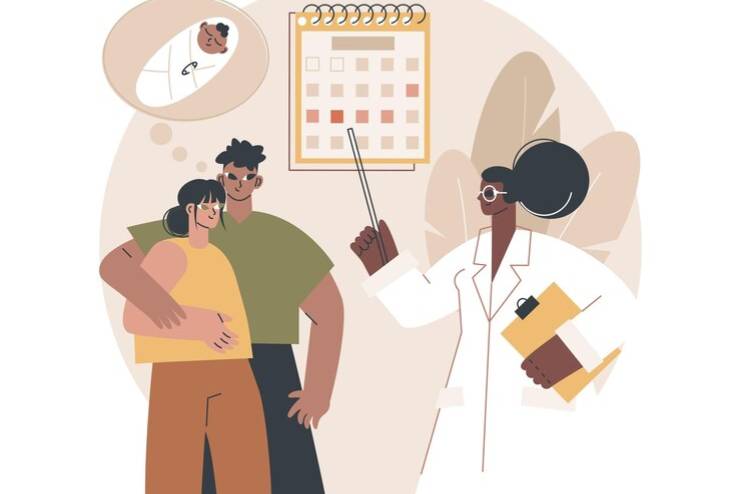
Now that you know about hormones, symptoms, and the conditions caused due to hormonal imbalances, you need to know its diagnosis. Your doctor will first assess your symptoms and history to identify potential imbalances.
- Normally, blood tests are carried out to measure the levels of important hormones, including estrogen, progesterone, testosterone, and thyroid hormones.
- In females, tests may also monitor follicle-stimulating hormone (FSH) and luteinizing hormone (LH) levels to assess menstrual cycle regulation and ovulation.
- Your doctor may also suggest other tests, like ultrasound or saliva tests, when other conditions, such as PCOS and thyroid dysfunction, have to be investigated.
These tests would pinpoint the specific hormonal disruptions affecting your fertility. Your fertility specialist or endocrinologist will interpret the results and develop a personalized treatment plan based on the diagnostic results. In this respect, early and correct diagnosis can help you improve the possibilities of effective management and enhancement of fertility outcomes.
Treatments for Hormonal Imbalance and Improving Fertility

Treating hormonal imbalances often involves a combination of lifestyle changes, medications, and specialized therapies to restore hormone levels and enhance fertility.
- Lifestyle Modifications: Make certain modifications for a balanced diet. Include fruits, vegetables, and lean proteins. Regular exercise will also help to keep the hormonal balance in order. Yoga and meditation will minimize stress and prevent hormonal disruption.
- Medications: Treatments for women may include hormonal contraceptives that help regulate menstrual cycles or fertility drugs such as Clomid to induce ovulation. If you’ve low levels of progesterone, then progesterone supplements may be prescribed. Men may need testosterone replacement therapy or medicines to increase sperm production when testosterone levels or other related hormones are low.
- Hormone Therapy: In serious cases, your doctor may recommend hormone therapy. This may include thyroid hormone replacement when necessary or other specific treatments for particular disorders such as polycystic ovary syndrome (PCOS). When natural conception is not possible, assisted reproductive technologies (ART) may be offered, including the use of in-vitro fertilization (IVF) or intrauterine insemination (IUI).
HS Recommended Article: Top 8 Hormone-Balancing Foods: Supporting Women’s Hormonal Health Naturally
When to See a Fertility Specialist

If you have been trying to conceive and nothing has worked for more than a year, perhaps it is time to see a fertility specialist. Women above 35 years of age should seek help after six months of attempts in vain. A fertility specialist will carry out full assessments that can reveal if infertility is because of hormonal imbalance or something else.
Therefore, seek consultations with professionals early enough, especially if you have irregular menstrual cycles, severe hormonal symptoms, or a condition related to disorders, such as PCOS or thyroid disorders. This helps in better treatment options and increases the chances of conception.
Conclusion
Hormonal balance is an essential component of the conception process and overall fertility. High levels of hormonal imbalance go a long way to affect your reproductive health. With the availability of various diagnostic tools and treatments, such as hormone therapies and lifestyle modifications, management of hormonal imbalances is more feasible than ever.
A fertility specialist can give you personal strategies and support for successful conception. Pay attention to your hormonal health and explore fertility treatment options for a healthier reproductive experience.
References
- https://www.jprobertsobgyn.com/blog/how-a-hormone-imbalance-affects-your-fertility
- https://lomalindafertility.com/infertility/women/hormonal-imbalance
- https://my.clevelandclinic.org/health/diseases/22673-hormonal-imbalance
- https://www.fertility-academy.co.uk/blog/can-a-hormone-imbalance-affect-my-fertility
- https://oasisindia.in/blog/can-you-get-pregnant-with-hormonal-imbalance
- https://www.onefertilitykitchenerwaterloo.com/hormonal-imbalances-affect-fertility-men-women
In this Article


















